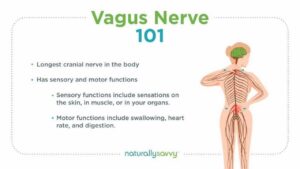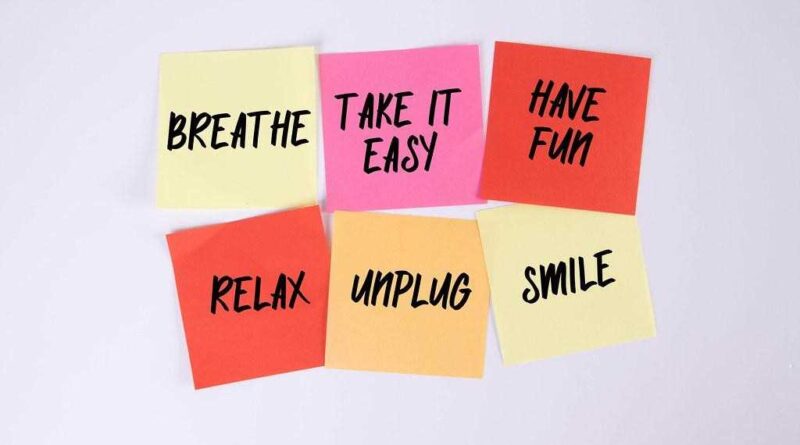Breathing and Health
Breathing & Health Connection
by Raquel Torres
 Every single system in the body relies on oxygen, effective breathing can not only provide you with a greater sense of mental clarity, it can also help you sleep better, digest food more efficiently, improve your body’s immune system, and reduce stress. Many people who practice exercises like yoga, especially those who focus on breath control, have been shown to regulate the Sympathetic Nervous System (a network of nerves that helps your body activate its “fight-or-flight” response).
Every single system in the body relies on oxygen, effective breathing can not only provide you with a greater sense of mental clarity, it can also help you sleep better, digest food more efficiently, improve your body’s immune system, and reduce stress. Many people who practice exercises like yoga, especially those who focus on breath control, have been shown to regulate the Sympathetic Nervous System (a network of nerves that helps your body activate its “fight-or-flight” response).
When it comes to improving our health, many of us focus on areas we can easily quantify and track, such as the food we consume or the exercises we do. Although it may be harder to measure, reducing and managing stress is a key component of staying healthy. Chronic stress has been linked to heart disease, high blood pressure, diabetes, depression, and anxiety, according to the National Institute of Mental Health.
There is evidence to suggest that deep breathing can be an effective intervention to help improve many chronic health conditions, says Yufang Lin, MD, an internal medicine doctor at the Center for Integrative Medicine at Cleveland Clinic Health System in Ohio.
It’s important to note that breathing exercises are a complementary therapy, says Dr. Lin. “Deep breathing should not replace any of the other medicines or interventions that your doctor recommends,” she says. Put differently, deep breathing is not an alternative therapy.
Deep breathing can signal your body to relax
“When you’re under stress, your Sympathetic Nervous System is stimulated, which is associated with stress-related symptoms such as faster breathing, heart-rate elevation, irritability, elevated blood pressure, anxiety and body tension,” says Lin. That’s part of what is known as the fight or flight response, she says. Slowing down and engaging in deep breathing basically counters the sympathetic nervous system, she says.
“When you engage in deep breathing, your abdomen is soft as you engage your diaphragm and take a deep breath in with the intention of really filling up the whole lung with air,” Lin adds. “You’re slowing down the heart rate, reducing your blood pressure, and relaxing your muscles. When you take that deep breath in, it stimulates the Vagus Nervous System in the body, ” says Lin. The vagus nerve runs from the brainstem to the abdomen and is a main component of the parasympathetic nervous system, which is responsible for the body’s “rest and digest” activities.
 What is the function of the vagus nerve?
What is the function of the vagus nerve?
Your vagal nerves are part of your body’s nervous system. They play important roles in involuntary sensory and motor (movement) functions, including:
● Digestion.
● Heart rate, blood pressure and respiration (breathing).
● Immune system responses.
● Mood.
● Mucus and saliva production.
● Skin and muscle sensations.
● Speech.
● Taste.
Your left and right vagal nerves contain 75% of your Parasympathetic Nervous system’s nerve fibers. These fibers send information between your brain, heart and digestive system.
As with exercise or meditation, deep breathing will be most beneficial if you treat it as a daily practice, says Lin. “It can help in the moment — I’ve had patients who were anxious lower their blood pressure and heart rate significantly with just a minute of deep breathing. However, you will have the most benefit if you practice regularly,” she says. This will help your body recognize what you are doing and be more responsive,” she adds.
A Better Way to Breathe
Since there are so many systems at play with each and every breath, it is important to allow all of these coordinating processes to work the way they should.
This begins, first and foremost, with great posture. Sitting up straight allows the lungs to expand quickly and efficiently with every breath. Likewise, sitting up straight helps air to travel into the lungs and carbon dioxide to travel out of the lungs unimpeded. If you are sitting at your desk and feel foggy or otherwise uninspired, take a moment to reposition your body with a straight back to notice an immediate improvement at how well oxygen is reaching your bloodstream and thereby your brain.
While many people focus on completely inhaling in order to improve their breathing, most people only exhale 70 percent of the carbon dioxide in their lungs. Try, instead, to push all of the air out of your lungs as though you are blowing bubbles. Not only will your body reward you with instant energy, you will notice how much more efficient you are in filling your lungs.
 How Stress Can Impact Disease
How Stress Can Impact Disease
According to a recent study, an estimated 60 to 80 percent of primary care doctor visits are related to stress, and yet only 3 percent of patients receive stress management help.
Stress affects most health conditions, says Philip Barr, MD, a board-certified integrative health doctor and staff physician at Global Cardio Care in Los Angeles. “Basically, our nervous system flows to every tissue in the body. If the stress side of our nervous system is overactive, it literally affects every tissue in our body; any kind of disorder that is already going on in that organ system can be made worse by stress,” he says.
In conclusion, since we are living in a rapid world, breathing and relaxing are now more important or essential in order to have a healthy and happy life.
Coping With Stress or Anxiety
Learning what and what coping techniques work for you can help reduce your anxiety and improve your daily life. It may take trial and error to discover what works best for you. Here are some activities you can try when you start to feel overwhelmed:
● Stick to a sleep routine, and make sure you are getting enough sleep.
● Exercise, and make sure you are eating healthy, regular meals
● Avoid drinking excess caffeine such as soft drinks or coffee.
● Identify and challenge your negative and unhelpful thoughts, replace them with a positive thought.
● Download an app that provides relaxation exercises (such as deep breathing or visualization) or tips for practicing mindfulness, which is a psychological process of actively paying attention to the present moment.
● Reach out to others who help you cope in a positive way.
Raquel Torres is a USAT Certified Coach, Professional Triathlon Coach and Professional Triathlete. Raquel also writes blogs for several magazines and her team Athletic Mentors. Since May 2021 she contributes as a columnist with CNY Latino Newspaper. She shares true life stories with her experiences, also tips and tactics that helps anyone to be their best version. To read about her, head over to cnylatinonewspaper.com and search for her by her name. You can also send questions or comments about her column to the following email: raquel@athleticmentors.com and go to her website at www.raqueltorres.org
and her team Athletic Mentors. Since May 2021 she contributes as a columnist with CNY Latino Newspaper. She shares true life stories with her experiences, also tips and tactics that helps anyone to be their best version. To read about her, head over to cnylatinonewspaper.com and search for her by her name. You can also send questions or comments about her column to the following email: raquel@athleticmentors.com and go to her website at www.raqueltorres.org


